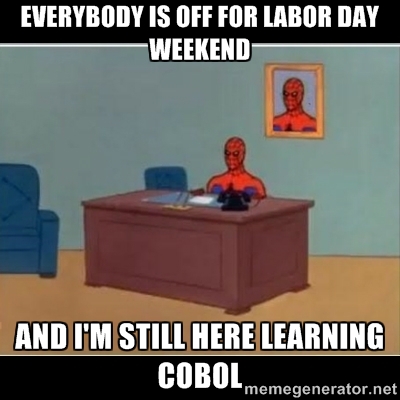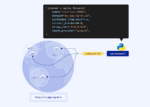
Welcome to another long weekend. What better time to learn the very basics of a new language? We’ve got a host of links below to some tutorials, so dive in and learn you some Ruby, Python, COBOL, FORTRAN, Factor, or whatever!
Looking for a fun way to learn Ruby? Try Ruby is a great place to start, with plenty of challenges to undertake. This is probably the most pleasant language-learning experience on the Web right now, and has been for some time.
When it comes to Python, however, there are a number of options, starting with Zed Shaw’s “Learn Python the Hard Way.” The official route would be over at LearnPython.org, where you can get the Python-approved tutorial for free. There’s also a subreddit just for learning Python. For the kids in the family, Al Sweigart’s excellent free e-book, “Invent Your Own Computer Games With Python,” is a great place to start, as it is modeled on the 1980s style of programming books.
COBOL, on the other hand, is a bit trickier to learn on the Web these days. There is a tutorial that covers the basics. The University of Limerick has its course notes and info online, and there’s a brief overview at zingCOBOL. Then there’s Academic Tutorials. No matter how you go about it, learning COBOL is the easiest way to double your salary, provided you can find the jobs when they come open. It’s a rare and lucrative skill.
FORTRAN, too, is a fairly lucrative though rare and rarely needed skill these days. When it’s needed, you can bet the job pays well, though. FORTRAN Tutorial has free tutorials, while the University of Delaware’s Physics department has its introduction course online. The University of Hawaii, too, has some good FORTRAN lessons.
Finally, if you want to learn something that is essentially useless from a business standpoint, try Factor. You can learn about it here. Factor belongs to the family of concatenative languages, which means that, at the lowest level, a Factor program is a series of words (functions) that manipulate a stack of references to dynamically typed values. This gives the language a powerful foundation that allows many abstractions and paradigms to be built on top.






